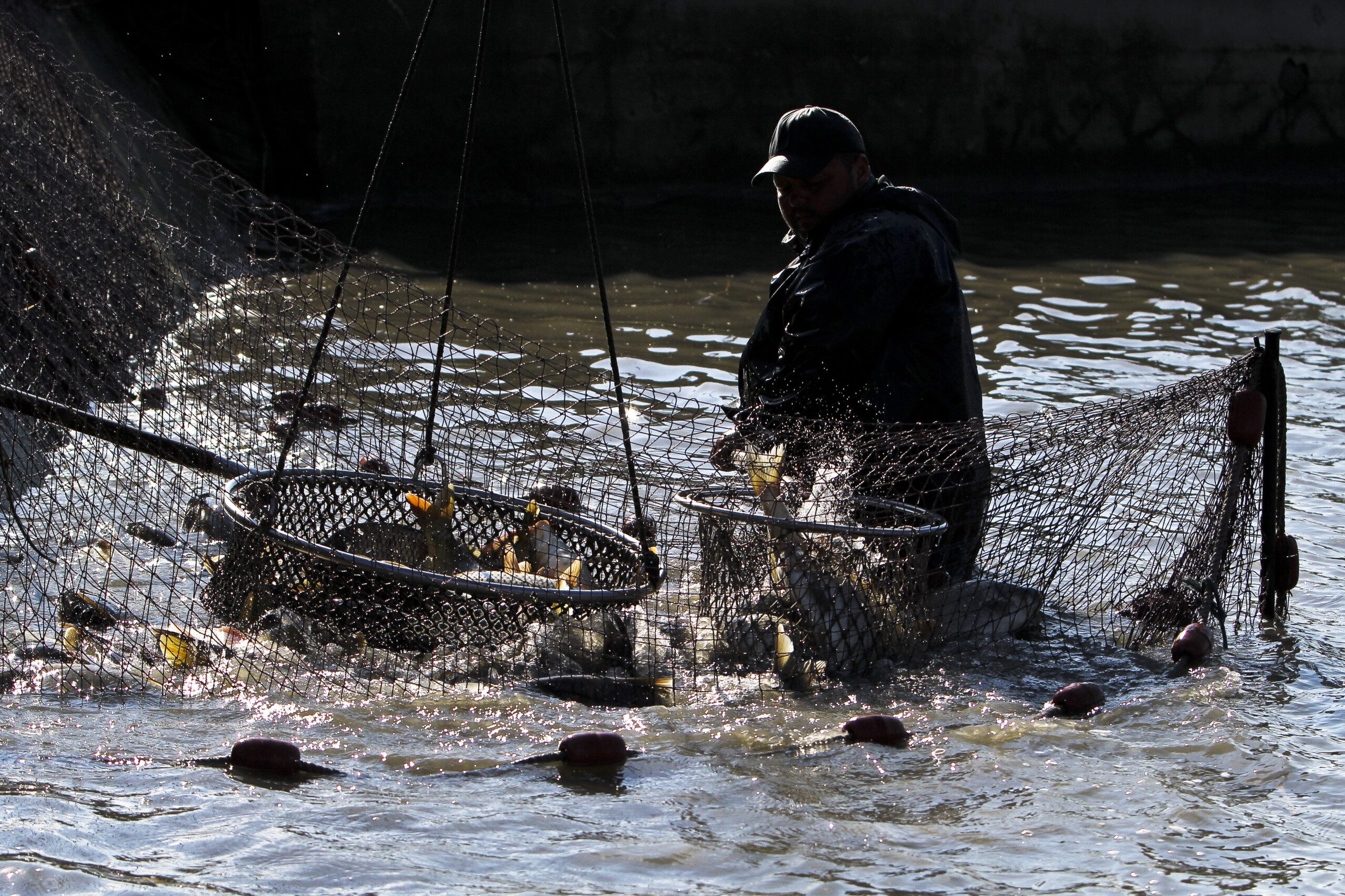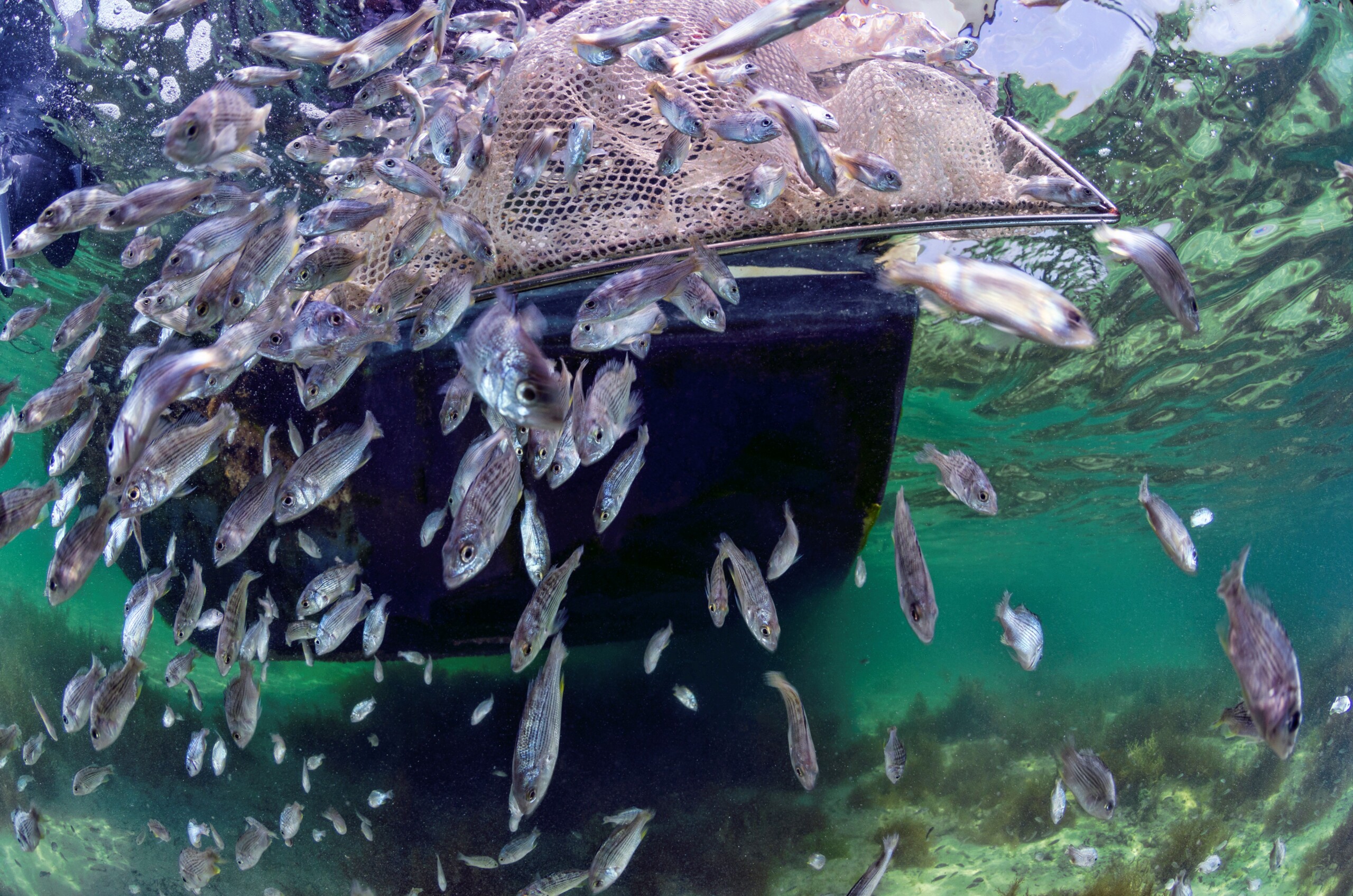What caused the request for the evaluation of the PVS of aquatic animal health services?
Delegate of Kazakhstan, Dr Samat Tyulegenov (Dr Tyulegenov): In Kazakhstan, the total area of water bodies, excluding the Caspian Sea, is about 3 million hectares in different climatic zones, which gives us the opportunity to produce various fish species in different conditions: lake and pond farming, cage farming and other forms of fish production. By 2030 we plan to increase the volume of commercial fish breeding up to 270 thousand tons of fish per year by establishing more than 1000 fish farms.
Active development of the aquaculture industry, including the expansion of exports, requires the introduction of international standards to ensure the safety of the products produced. The World Organisation for Animal Health (WOAH, founded as OIE) PVS evaluation of aquatic animal health services is an efficient tool to identify gaps and deficiencies of the competent authority that will be addressed to achieve compliance with relevant WOAH international standards and to set priorities for the implementation of strategic development in this industry.
In addition, the PVS assessment of the aquatic animal health services is a key step to identifying and validating priorities of the national veterinary service
The PVS Evaluation mission was initiated based on the request of the Republic of Kazakhstan and is the first mission of this type of the PVS Pathway Evaluation stage in Central Asia to assist in strengthening national veterinary and aquatic animal health services.
There are two competent authorities for aquatic animals: Committee for Veterinary Control and the Fisheries Committee. What is the mandate of each Committee regarding aquatic animals? Which state body carries out aquatic animal health control activities?
Dr Tyulegenov: The Committee for Veterinary Control and Supervision of the Ministry of Agriculture of the Republic of Kazakhstan is in charge of veterinary and sanitary safety, performs regulatory, implementation, and control functions within its competence, and participates in strategic functions in the field of veterinary and food safety subject to veterinary and sanitary control and supervision.
According to Article 3 of the Law on Veterinary, the main tasks in the veterinary field are the protection of animals from diseases and their treatment, protection of public health from diseases common to animals and humans, ensuring veterinary and sanitary safety, protection of the territory of Kazakhstan from importation and spread of contagious and exotic animal diseases from other states, etc.
The Fisheries Committee of the Ministry of Ecology, Geology and Natural Resources of the Republic of Kazakhstan is responsible for the implementation of the activities in the field of protection, reproduction, and use of wildlife, as well as the development of aquaculture (fish farming).
What are your expectations from the mission?
Dr Tyulegenov: It is expected to obtain an independent assessment of the gaps in veterinary control over aquaculture, as well as to receive appropriate recommendations on the implementation of relevant WOAH international standards in the short and long term.
These recommendations will be considered for the improvement of the current legal framework, which is carried out as part of the reform of Veterinary Services.
Are aquatic animal health specialists trained in Kazakhstan?
Dr Tyulegenov: Currently, there are six higher educational institutions in Kazakhstan that train specialists in the fisheries sector. There is a short course on diseases and the health of fish and fishery resources as part of general education courses.
There is also a private project called “Balyk Mektep” (“Fish School”), which provides training on aquaculture activities.
How do you assess the current regulatory framework of the fish farming (aquaculture) industry?
Dr Tyulegenov: The current regulatory framework needs to be updated in accordance with the requirements of the WOAH Aquatic Animal Health Code.

